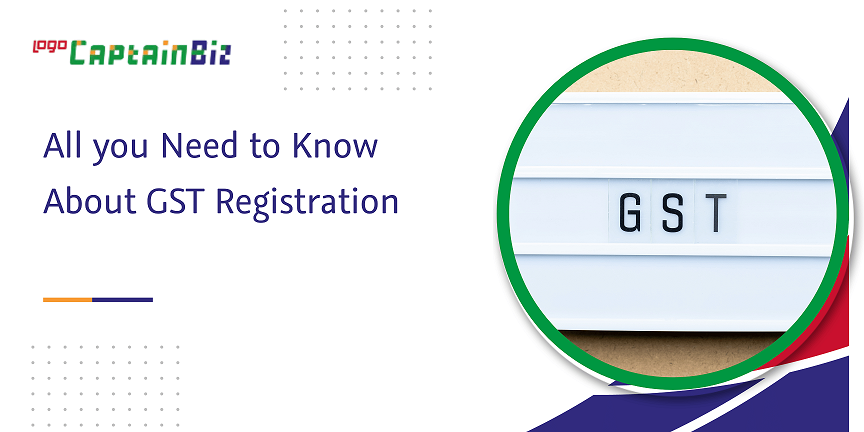Contrast and Choose the most effective GST Registration Services in Singapore for Your Requirements
Contrast and Choose the most effective GST Registration Services in Singapore for Your Requirements
Blog Article
From Beginning To End: The Ultimate Roadmap to GST Enrollment for Organizations Seeking Financial Security
Browsing the complexities of Goods and Provider Tax Obligation (GST) registration is an important step for businesses pursuing monetary security. From comprehending the essential concepts of GST to abiding by post-registration guidelines, the procedure can appear intimidating initially glimpse. Nonetheless, damaging down the roadmap right into convenient steps can improve the registration trip for organizations aiming to boost their economic standing. Let's check out the crucial components that compose this best roadmap and discover how each stage adds to laying a strong foundation for monetary success.
Comprehending GST Basics
Looking into the fundamental principles of Item and Provider Tax (GST) is vital for getting an extensive understanding of its implications on businesses and the economy. GST is a value-added tax obligation levied on many goods and solutions for domestic consumption. It has actually replaced multiple indirect taxes that existed in the pre-GST age, streamlining the tax obligation structure and boosting convenience of doing business in India. Under the GST system, both services and items are strained at a specific price, which is identified based on their category. If their yearly turn over surpasses the threshold limitation established by the federal government, organizations are required to register for GST. Input Tax Debt (ITC) is a substantial feature of GST, enabling companies to declare debt for tax obligations paid on inputs, decreasing the total tax burden. Recognizing the fundamentals of GST is vital for organizations to follow tax guidelines, manage their funds efficiently, and add to the nation's financial growth by taking part in a transparent tax obligation system.
Eligibility Requirements for Enrollment
As of the current guidelines, the threshold limitation for GST registration is an annual aggregate turnover of 40 lakhs for services operating within a state, other than for unique group states where the limit is 20 lakhs. In addition, particular businesses are called for to register for GST regardless of their turnover, such as interstate vendors, laid-back taxable persons, and organizations liable to pay tax under the reverse fee system. It is vital for companies to extensively evaluate their turn over and deal types to establish their GST registration responsibilities precisely.
Papers Needed for Enrollment
Having met the eligibility criteria for GST registration, organizations need to currently guarantee they have the requisite documents in location to proceed with the enrollment process efficiently. The files required for GST registration usually consist of proof of business constitution, such as collaboration act, enrollment certificate, or consolidation certification for different types of companies. Furthermore, services need to provide records developing the principal place of business, such as a rental agreement or power costs.
Step-by-Step Enrollment Process
Beginning the GST registration process involves a series of structured steps to guarantee a compliant and smooth registration for companies. The primary step is to see the GST site and fill in the registration form with exact information of business entity. Following this, the applicant obtains a Short-lived Recommendation Number (TRN) which is used to resume the application process if it's not finished in one go.
Following, all required documents as per the checklist provided by the GST portal demand to be submitted. These papers generally include evidence of service enrollment, identification and address proofs of marketers, economic statements, and organization entity's PAN card.

Post-Registration Conformity Standards

Final Thought
To conclude, businesses seeking financial stability should understand the basics of GST, satisfy qualification criteria, gather needed documents, follow the step-by-step registration procedure, and adhere to post-registration guidelines - Best GST registration services in Singapore. By sticking to these steps, companies can make certain compliance with tax obligation laws and preserve financial security in the long run
Additionally, certain services are required to register for GST regardless of their turn over, such as interstate providers, laid-back taxable persons, and services liable to pay tax under the reverse fee system.Having fulfilled the qualification criteria for GST registration, organizations should currently guarantee they have the additional hints requisite records in area to continue with the enrollment process effectively. The papers required for GST enrollment commonly consist of proof of company constitution, such as partnership action, registration certificate, or consolidation certification for different types of companies. Additionally, services need to supply documents developing the principal location of service, such as a rental arrangement or power bill.Beginning the GST enrollment procedure involves a series of structured steps to make certain a compliant and smooth registration for companies.
Report this page